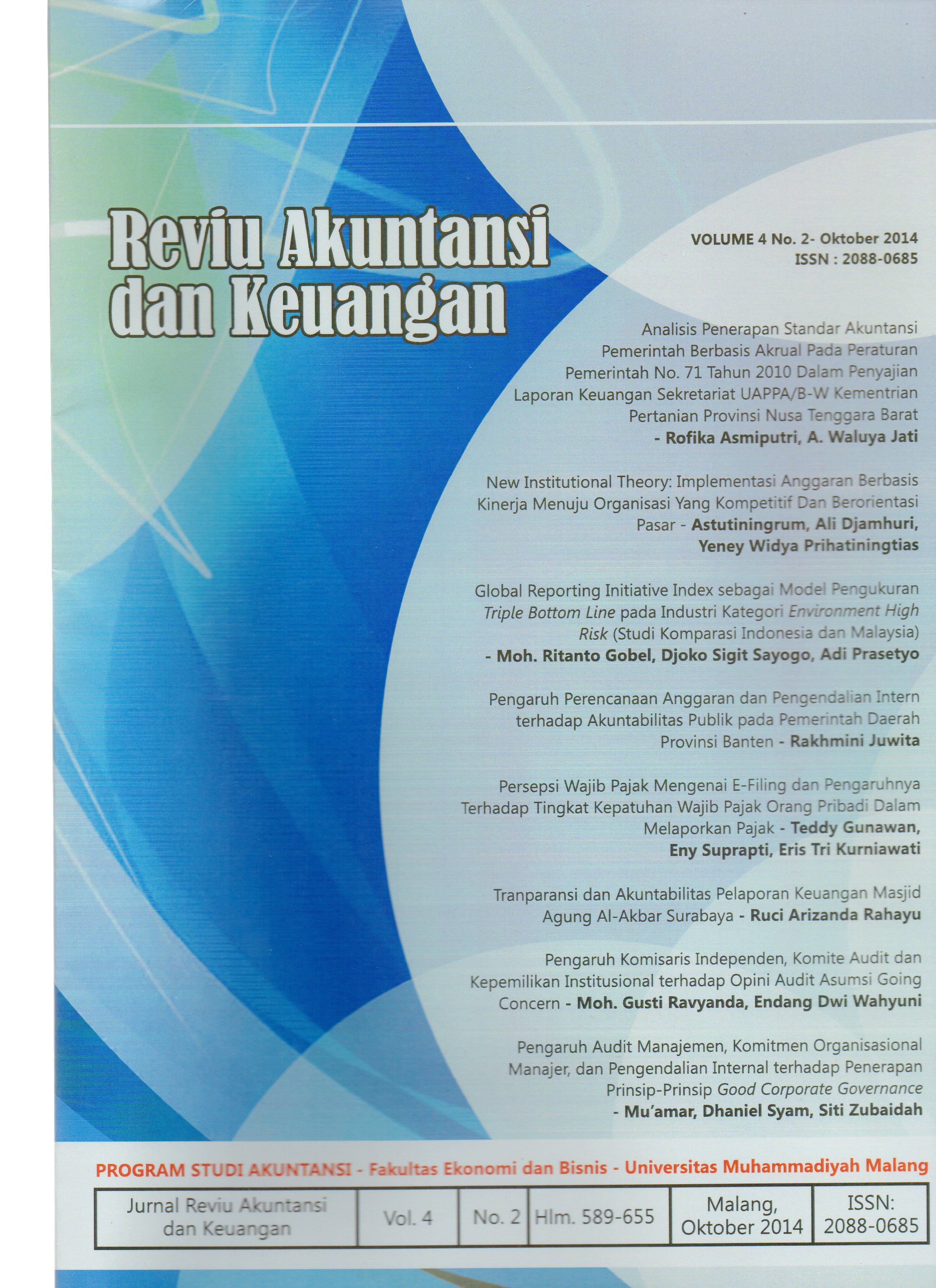New Institutional Theory: Implementasi Anggaran Berbasis Kinerja Menuju Organisasi Yang Kompetitif Dan Berorientasi Pasar
DOI:
https://doi.org/10.22219/jrak.v4i2.4944Abstract
The purpose of this study was to understand the organizational changes that occurred after the
adoption of the performance-based budgeting. Organizational change was analyzed from the
perspective of the NIT with a research focus on the process of implement performance-based
budgeting in dr. Iskak Tulungagung Hospital. The research strategy is a case study with a
qualitative approach. Results of research indicate the occurrence of coercive isomorphism, as an
effort to gain legitimacy, which is supported by mimetic ishomorphism, which attempts impersonation of another organization, although it is weak. The dominant symptom is normative
ishomorphism, as indicated by the members of the organization normative belief that performance-based budgeting system is most appropriate for the characteristics of the hospital. The
implementation of performance-based budgeting has encouraged the use of funds more effectively and efficiently, so that dr. Iskak Tulungagung likely to benefit in order to motivate organizations become morecompetitive and at the same time market-oriented.
Ke ywords: Organizational Changes, Performance-Based Budgeting, Hybrid Organization, New
Institutional Theory
Downloads
Downloads
Published
Issue
Section
License

Jurnal Reviu Akuntansi dan Keuangan is licensed under a Creative Commons Attribution-NonCommercial-ShareAlike 4.0 International License.
Authors who publish with this journal agree to the following terms:
- Authors retain copyright and grant the journal right of first publication with the work simultaneously licensed under a Creative Commons Attribution-NonCommercial-ShareAlike 4.0 International License that allows others to share the work with an acknowledgement of the work's authorship and initial publication in this journal.
- Authors are able to enter into separate, additional contractual arrangements for the non-exclusive distribution of the journal's published version of the work (e.g., post it to an institutional repository or publish it in a book), with an acknowledgement of its initial publication in this journal.
- Authors are permitted and encouraged to post their work online (e.g., in institutional repositories or on their website) prior to and during the submission process, as it can lead to productive exchanges, as well as earlier and greater citation of published work (See The Effect of Open Access).










